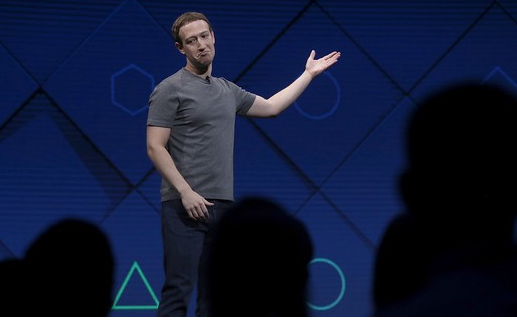CommentsSOCIAL MEDIA REGULATION - While newly revealed Facebook whistleblower Frances Haugen appeared before a U.S. Senate panel on Tuesday morning, longtime critics of the social media behemoth elevated calls for legislative and regulatory action to break up Big Tech, outlaw tech giants' surveillance capitalist business model, and fight for a digital environment that respects rights and benefits democracy.
"This culture of impunity must now end."
—Carole Cadwalladr, RFOB
Haugen, a former Facebook employee, told senators the company's products "harm children, stoke division, and weaken our democracy," and that "congressional action is needed."
Her testimony followed a Wall Street Journal series, a televised interview revealing her identity, and U.S. Securities and Exchange Commission (SEC) complaints. It also came a day after Facebook and its other platforms—Instagram, Messenger, and WhatsApp—went down for hours, provoking fresh calls to break up the monopolistic company.
In a statement Tuesday about Haugen's remarks, the Real Facebook Oversight Board (RFOB)—a group of advocates and experts that formed in response to ongoing harms on the platform—declared that "this is Facebook's moment of reckoning" and demanded Congress act in response to the company profiting from enabling the spread dangerous lies and hateful content.
"We call for a full investigation into Facebook, including criminal inquiries if necessary, for lying to shareholders, regulators, and the government," said RFOB. "We call for an independent, outside audit. And we call urgently for Facebook to have real oversight—independent oversight with transparency, integrity, and power. Facebook must be investigated, audited, regulated, and stopped."
RFOB members echoed calls for immediate action by lawmakers and regulators to end Facebook's harmful practices.
"This is a watershed moment where we need to fight for policy that preserves the democratizing and revolutionary potential of the Internet."
—Evan Greer, Fight for the Future
"Facebook is a vector for bigotry, lies, and violence, and it is undermining democracy at every turn. That much we've long known," said Jessica González, co-CEO of the advocacy group Free Press Action.
"What Frances Haugen has bravely revealed is Facebook's actual knowledge and serial cover-up of the extent of its global harms," González continued. "Haugen's testimony before Congress is a definitive moment—one that calls for an immediate response from Washington. We now unequivocally know that Facebook is unfit to self-govern."
Carole Cadwalladr, an RFOB co-founder and British journalist who broke the Cambridge Analytica scandal, concurred that "this needs to be the beginning of the end of the great Facebook cover-up. Congress needs to legislate. And the SEC needs to act."
"Frances Haugen has submitted devastating evidence that Mark Zuckerberg has lied and misled Congress, investors, and users," Cadwalladr added, referencing Facebook's CEO. "These are potentially criminal offenses. This culture of impunity must now end."
Following Haugen's "60 Minutes" interview but before her congressional testimony, Evan Greer, director of the digital rights group Fight for the Future, released a statement saying that "this is a watershed moment where we need to fight for policy that preserves the democratizing and revolutionary potential of the Internet, while finally putting an end to the inherently harmful business model of Silicon Valley's most powerful companies."
Greer explained some of "the grim inner workings of Facebook's surveillance capitalist machine" and what could be done to address it. As she detailed:
The problem with Facebook's products is not that they host user generated content. It's that they use machine learning to show us the content that Facebook thinks we want to see (and suppress content that they don't want us to see or think we don't want to see), in order to keep us on the platform longer and sell more ads.
What Facebook sells is not an online message board where people can express themselves, it's surveillance-driven algorithmic manipulation that's maximized for engagement. Regulating the algorithms that companies like Facebook and YouTube use to recommend content can be difficult––many policies that attempt to do so run afoul of the First Amendment. Other suggestions, like changing Section 230 of the Communications Decency Act, would do more harm than good, silence the voices of marginalized communities, and could actually solidify Big Tech giants' monopoly power.
What Congress should do, according to Greer, is pass privacy legislation "strong enough to kill Facebook's current business model entirely" and "make it illegal for Big Tech companies to engage in the mass surveillance and data harvesting practices that power the algorithms they use to recommend and suppress content."
"There is no single silver bullet solution that will magically fix the Internet," she added. "But pushing our elected officials to finally get off their butts and pass a real federal data privacy law would be a damn good start."
In addition to supporting a comprehensive privacy law and the use of agencies' oversight authority, Free Press' González said Tuesday that "Congress needs to pass legislation that imposes a tax on online advertising and directs the resulting money to support the sorts of high-quality noncommercial and local journalism that can act as the antidote to the spread of dangerous disinformation via Facebook and other platforms."
Critics of Facebook also want lawmakers to end Big Tech monopolies that harm both consumers and small businesses.
Last month, as Common Dreams reported, dozens of advocacy groups urged Congress to pass a package of "groundbreaking" bills developed by the House Judiciary Committee targeting companies such as Amazon, Apple, Facebook, and Google.
"If enacted, these bills are a major step forward in restoring competitive markets and unlocking the potential of Americans to grow successful businesses and build an economy that is more prosperous, equitable, and innovative," the groups wrote to congressional leaders. "Furthermore, they represent our best chance in generations to rein in the runaway power of the biggest, wealthiest, and least accountable corporations in the world."
(Jessica Corbett is a staff writer for Common Dreams.)















